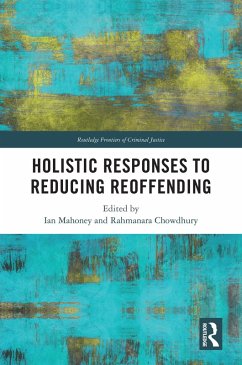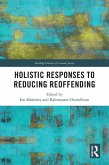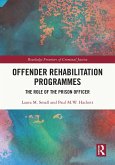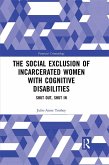Holistic Responses to Reducing Reoffending (eBook, ePUB)
Redaktion: Mahoney, Ian; Chowdhury, Rahmanara
41,95 €
41,95 €
inkl. MwSt.
Sofort per Download lieferbar

21 °P sammeln
41,95 €
Als Download kaufen

41,95 €
inkl. MwSt.
Sofort per Download lieferbar

21 °P sammeln
Jetzt verschenken
Alle Infos zum eBook verschenken
41,95 €
inkl. MwSt.
Sofort per Download lieferbar
Alle Infos zum eBook verschenken

21 °P sammeln
Holistic Responses to Reducing Reoffending (eBook, ePUB)
Redaktion: Mahoney, Ian; Chowdhury, Rahmanara
- Format: ePub
- Merkliste
- Auf die Merkliste
- Bewerten Bewerten
- Teilen
- Produkt teilen
- Produkterinnerung
- Produkterinnerung

Bitte loggen Sie sich zunächst in Ihr Kundenkonto ein oder registrieren Sie sich bei
bücher.de, um das eBook-Abo tolino select nutzen zu können.
Hier können Sie sich einloggen
Hier können Sie sich einloggen
Sie sind bereits eingeloggt. Klicken Sie auf 2. tolino select Abo, um fortzufahren.

Bitte loggen Sie sich zunächst in Ihr Kundenkonto ein oder registrieren Sie sich bei bücher.de, um das eBook-Abo tolino select nutzen zu können.
Offering a range of theoretical and conceptual ideas as well as practical examples, this book provides a detailed insight into holistic opportunities for promoting desistance, reducing reoffending, and supporting (re)settlement and (re)integration.
- Geräte: eReader
- mit Kopierschutz
- eBook Hilfe
Andere Kunden interessierten sich auch für
![Holistic Responses to Reducing Reoffending (eBook, PDF) Holistic Responses to Reducing Reoffending (eBook, PDF)]() Holistic Responses to Reducing Reoffending (eBook, PDF)41,95 €
Holistic Responses to Reducing Reoffending (eBook, PDF)41,95 €![Offender Rehabilitation Programmes (eBook, ePUB) Offender Rehabilitation Programmes (eBook, ePUB)]() Laura M. SmallOffender Rehabilitation Programmes (eBook, ePUB)41,95 €
Laura M. SmallOffender Rehabilitation Programmes (eBook, ePUB)41,95 €![Law, Drugs and the Politics of Childhood (eBook, ePUB) Law, Drugs and the Politics of Childhood (eBook, ePUB)]() Simon FlacksLaw, Drugs and the Politics of Childhood (eBook, ePUB)42,95 €
Simon FlacksLaw, Drugs and the Politics of Childhood (eBook, ePUB)42,95 €![Routledge Handbook of Evidence-Based Criminal Justice Practices (eBook, ePUB) Routledge Handbook of Evidence-Based Criminal Justice Practices (eBook, ePUB)]() Routledge Handbook of Evidence-Based Criminal Justice Practices (eBook, ePUB)45,95 €
Routledge Handbook of Evidence-Based Criminal Justice Practices (eBook, ePUB)45,95 €![Pracademics in Criminal Justice (eBook, ePUB) Pracademics in Criminal Justice (eBook, ePUB)]() Pracademics in Criminal Justice (eBook, ePUB)37,95 €
Pracademics in Criminal Justice (eBook, ePUB)37,95 €![The Routledge International Handbook of Juvenile Homicide (eBook, ePUB) The Routledge International Handbook of Juvenile Homicide (eBook, ePUB)]() The Routledge International Handbook of Juvenile Homicide (eBook, ePUB)45,95 €
The Routledge International Handbook of Juvenile Homicide (eBook, ePUB)45,95 €![The Social Exclusion of Incarcerated Women with Cognitive Disabilities (eBook, ePUB) The Social Exclusion of Incarcerated Women with Cognitive Disabilities (eBook, ePUB)]() Julie-Anne TooheyThe Social Exclusion of Incarcerated Women with Cognitive Disabilities (eBook, ePUB)43,95 €
Julie-Anne TooheyThe Social Exclusion of Incarcerated Women with Cognitive Disabilities (eBook, ePUB)43,95 €-
-
-
Offering a range of theoretical and conceptual ideas as well as practical examples, this book provides a detailed insight into holistic opportunities for promoting desistance, reducing reoffending, and supporting (re)settlement and (re)integration.
Dieser Download kann aus rechtlichen Gründen nur mit Rechnungsadresse in A, B, BG, CY, CZ, D, DK, EW, E, FIN, F, GR, HR, H, IRL, I, LT, L, LR, M, NL, PL, P, R, S, SLO, SK ausgeliefert werden.
Produktdetails
- Produktdetails
- Verlag: Taylor & Francis eBooks
- Seitenzahl: 254
- Erscheinungstermin: 7. Juni 2024
- Englisch
- ISBN-13: 9781040044407
- Artikelnr.: 70385782
- Verlag: Taylor & Francis eBooks
- Seitenzahl: 254
- Erscheinungstermin: 7. Juni 2024
- Englisch
- ISBN-13: 9781040044407
- Artikelnr.: 70385782
- Herstellerkennzeichnung Die Herstellerinformationen sind derzeit nicht verfügbar.
Ian Mahoney is a Senior Lecturer in Criminology and co-chair of the Critical Criminology and Social Justice Research group at Nottingham Trent University. His research adopts a cultural criminological lens and is currently focused on understanding and addressing the harms and impacts of crime and contact with the justice system across diverse groups including minoritised communities, women with convictions and individuals convicted of sexual offences. Rahmanara Chowdhury is a Senior Lecturer in Forensic Psychology at Nottingham Trent University. She is a chartered psychologist and a member of the Centre for Crime, Offending, Prevention and Engagement. Her work focuses on minority communities and manifestations of various forms of abuse, particularly within faith contexts. She also explores the experiences of minorities within the criminal justice system. Rahmanara is particularly keen to build bridges across communities that are often portrayed as the other and to be feared, through the sharing of knowledge, understanding, relationship building and capacity development.
Chapter 1: Holistic Responses to Reducing Reoffending
Ian Mahoney and Rahmanara Chowdhury
Part 1 - Considerations around Holistic Baseline Interventions
Chapter 2: Re-inventing the Resettlement of Prison Leavers in the UK. Housing First, Rehabilitation Last.
Colin Boyd and Paul Andell
Chapter 3: Reimagining Prison-Community Transitions through 'Resettlement Passports': Critical Reflections on Citizenship, Stigma and Society
Paul Hamilton and Joseph Hale
Chapter 4: The Digital Desistance Manifesto
Victoria Knight, Sarah Elison-Davies, Helen Farley and James Tangen
Chapter 5: The Multiple Faces of Electronic Monitoring: Considering its potential as a holistic response for (re)integration, (re)settlement, and reducing reoffending
Rafaela Granja and Sílvia Gomes
Part 2 - Consideration of Specific Population Groups
Chapter 6: Holistic responses as an approach to addressing minority needs in reducing reoffending
Rahmanara Chowdhury and Ian Mahoney
Chapter 7: Muslim Males and Forensic Mental Health: Current Challenges and the Value of Cultural Competence:
Damian J. Terrill and Rahmanara Chowdhury
Chapter 8: Lessons from public criminology for the reintegration of men with sexual convictions post-imprisonment
Kirsty Teague
Part 3 - Re-imagining support within Holistic Frameworks
Chapter 9: 'This Has Honestly Changed My Life' - Evaluating the Efficacy of Community Sentence Treatment Requirements
Jennifer Hough and Rachel Evans
Chapter 10: The significance of 'time' when finishing time - A case-study on holistic relationship-based approaches to supporting re/integration for criminal justice affected people.
Julie Parsons
Conclusions
Chapter 11: Future Directions in Frameworks of Holistic Approaches in (Re)integration and (Re)settlement
Rahmanara Chowdhury and Ian Mahoney
Ian Mahoney and Rahmanara Chowdhury
Part 1 - Considerations around Holistic Baseline Interventions
Chapter 2: Re-inventing the Resettlement of Prison Leavers in the UK. Housing First, Rehabilitation Last.
Colin Boyd and Paul Andell
Chapter 3: Reimagining Prison-Community Transitions through 'Resettlement Passports': Critical Reflections on Citizenship, Stigma and Society
Paul Hamilton and Joseph Hale
Chapter 4: The Digital Desistance Manifesto
Victoria Knight, Sarah Elison-Davies, Helen Farley and James Tangen
Chapter 5: The Multiple Faces of Electronic Monitoring: Considering its potential as a holistic response for (re)integration, (re)settlement, and reducing reoffending
Rafaela Granja and Sílvia Gomes
Part 2 - Consideration of Specific Population Groups
Chapter 6: Holistic responses as an approach to addressing minority needs in reducing reoffending
Rahmanara Chowdhury and Ian Mahoney
Chapter 7: Muslim Males and Forensic Mental Health: Current Challenges and the Value of Cultural Competence:
Damian J. Terrill and Rahmanara Chowdhury
Chapter 8: Lessons from public criminology for the reintegration of men with sexual convictions post-imprisonment
Kirsty Teague
Part 3 - Re-imagining support within Holistic Frameworks
Chapter 9: 'This Has Honestly Changed My Life' - Evaluating the Efficacy of Community Sentence Treatment Requirements
Jennifer Hough and Rachel Evans
Chapter 10: The significance of 'time' when finishing time - A case-study on holistic relationship-based approaches to supporting re/integration for criminal justice affected people.
Julie Parsons
Conclusions
Chapter 11: Future Directions in Frameworks of Holistic Approaches in (Re)integration and (Re)settlement
Rahmanara Chowdhury and Ian Mahoney
Chapter 1: Holistic Responses to Reducing Reoffending
Ian Mahoney and Rahmanara Chowdhury
Part 1 - Considerations around Holistic Baseline Interventions
Chapter 2: Re-inventing the Resettlement of Prison Leavers in the UK. Housing First, Rehabilitation Last.
Colin Boyd and Paul Andell
Chapter 3: Reimagining Prison-Community Transitions through 'Resettlement Passports': Critical Reflections on Citizenship, Stigma and Society
Paul Hamilton and Joseph Hale
Chapter 4: The Digital Desistance Manifesto
Victoria Knight, Sarah Elison-Davies, Helen Farley and James Tangen
Chapter 5: The Multiple Faces of Electronic Monitoring: Considering its potential as a holistic response for (re)integration, (re)settlement, and reducing reoffending
Rafaela Granja and Sílvia Gomes
Part 2 - Consideration of Specific Population Groups
Chapter 6: Holistic responses as an approach to addressing minority needs in reducing reoffending
Rahmanara Chowdhury and Ian Mahoney
Chapter 7: Muslim Males and Forensic Mental Health: Current Challenges and the Value of Cultural Competence:
Damian J. Terrill and Rahmanara Chowdhury
Chapter 8: Lessons from public criminology for the reintegration of men with sexual convictions post-imprisonment
Kirsty Teague
Part 3 - Re-imagining support within Holistic Frameworks
Chapter 9: 'This Has Honestly Changed My Life' - Evaluating the Efficacy of Community Sentence Treatment Requirements
Jennifer Hough and Rachel Evans
Chapter 10: The significance of 'time' when finishing time - A case-study on holistic relationship-based approaches to supporting re/integration for criminal justice affected people.
Julie Parsons
Conclusions
Chapter 11: Future Directions in Frameworks of Holistic Approaches in (Re)integration and (Re)settlement
Rahmanara Chowdhury and Ian Mahoney
Ian Mahoney and Rahmanara Chowdhury
Part 1 - Considerations around Holistic Baseline Interventions
Chapter 2: Re-inventing the Resettlement of Prison Leavers in the UK. Housing First, Rehabilitation Last.
Colin Boyd and Paul Andell
Chapter 3: Reimagining Prison-Community Transitions through 'Resettlement Passports': Critical Reflections on Citizenship, Stigma and Society
Paul Hamilton and Joseph Hale
Chapter 4: The Digital Desistance Manifesto
Victoria Knight, Sarah Elison-Davies, Helen Farley and James Tangen
Chapter 5: The Multiple Faces of Electronic Monitoring: Considering its potential as a holistic response for (re)integration, (re)settlement, and reducing reoffending
Rafaela Granja and Sílvia Gomes
Part 2 - Consideration of Specific Population Groups
Chapter 6: Holistic responses as an approach to addressing minority needs in reducing reoffending
Rahmanara Chowdhury and Ian Mahoney
Chapter 7: Muslim Males and Forensic Mental Health: Current Challenges and the Value of Cultural Competence:
Damian J. Terrill and Rahmanara Chowdhury
Chapter 8: Lessons from public criminology for the reintegration of men with sexual convictions post-imprisonment
Kirsty Teague
Part 3 - Re-imagining support within Holistic Frameworks
Chapter 9: 'This Has Honestly Changed My Life' - Evaluating the Efficacy of Community Sentence Treatment Requirements
Jennifer Hough and Rachel Evans
Chapter 10: The significance of 'time' when finishing time - A case-study on holistic relationship-based approaches to supporting re/integration for criminal justice affected people.
Julie Parsons
Conclusions
Chapter 11: Future Directions in Frameworks of Holistic Approaches in (Re)integration and (Re)settlement
Rahmanara Chowdhury and Ian Mahoney







